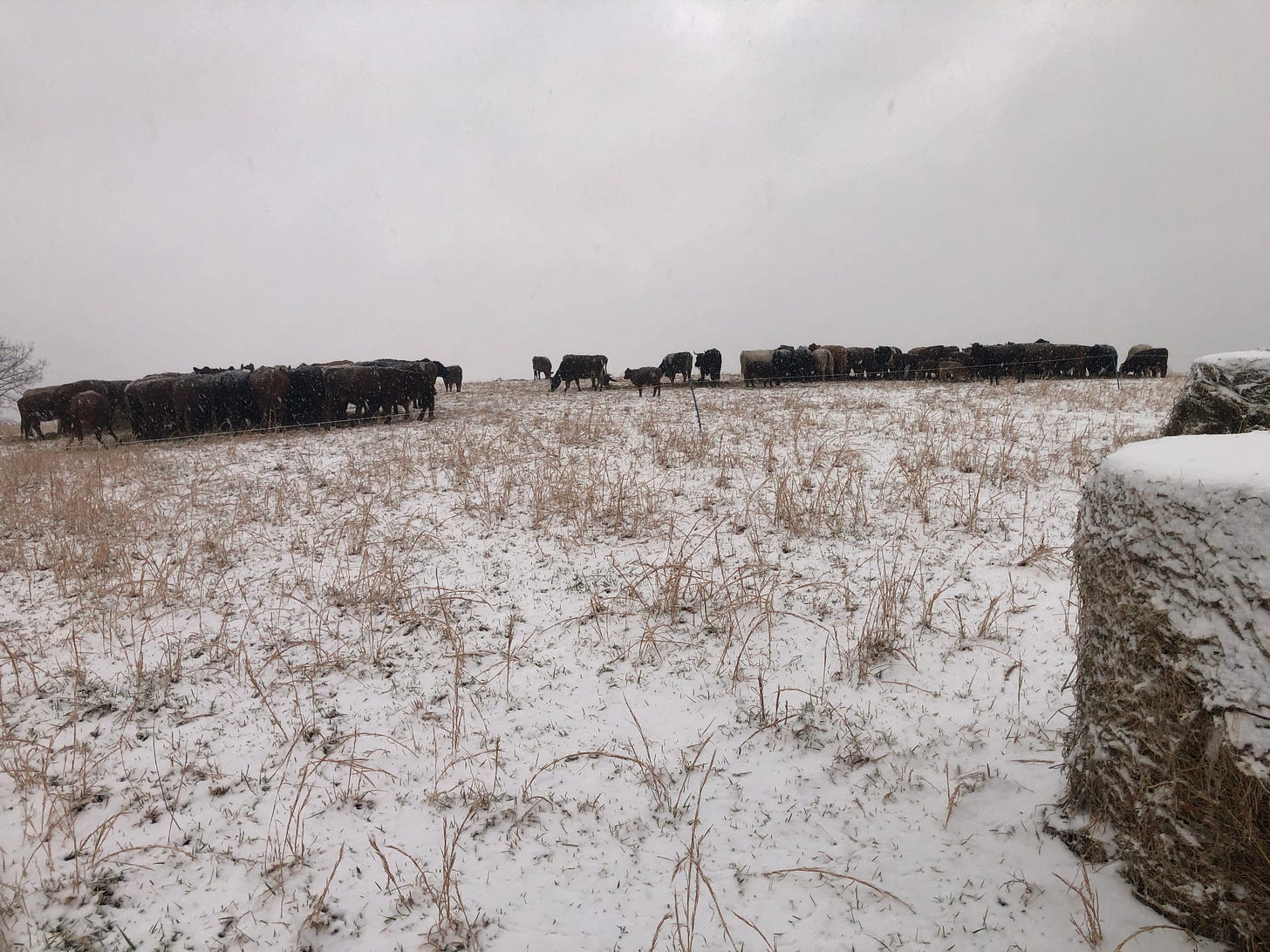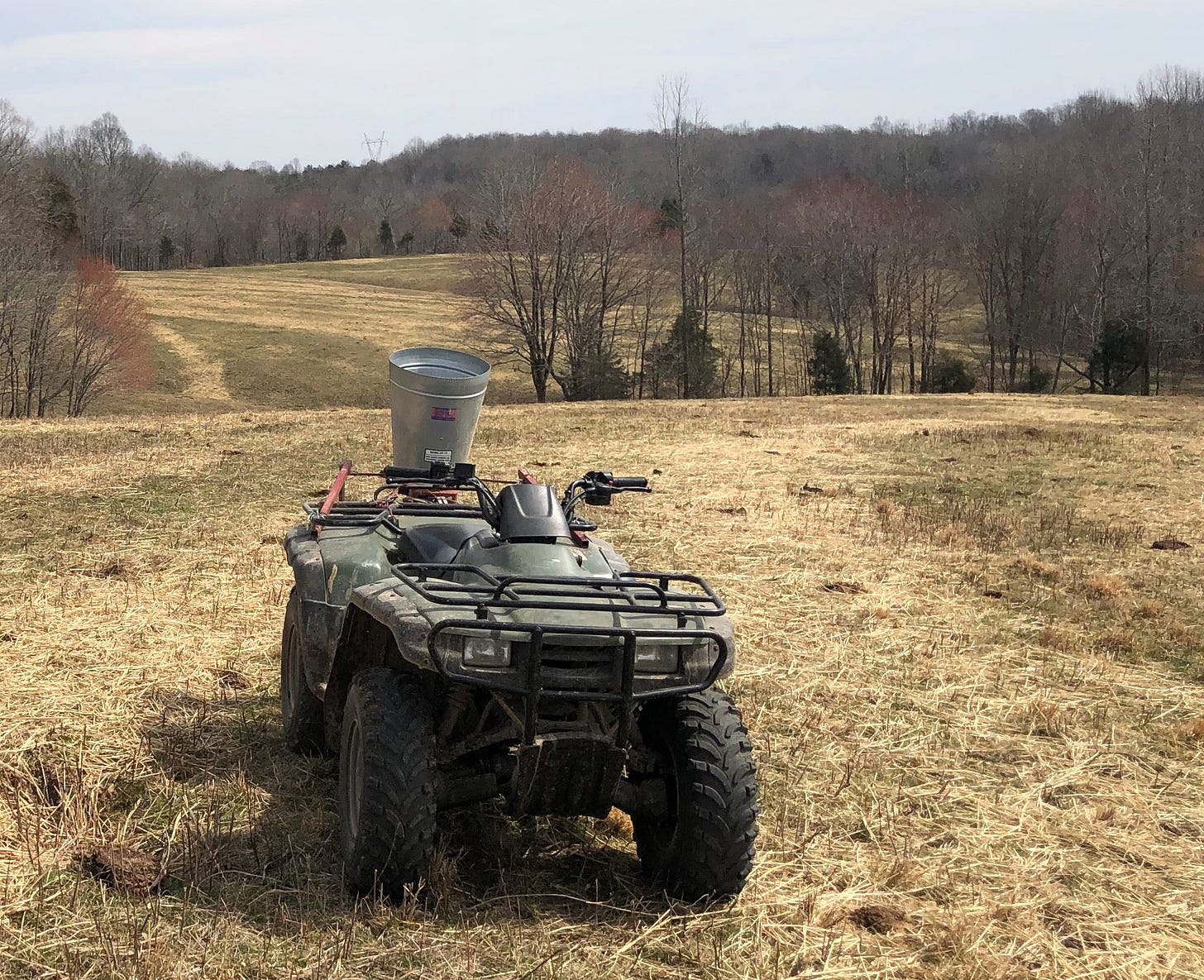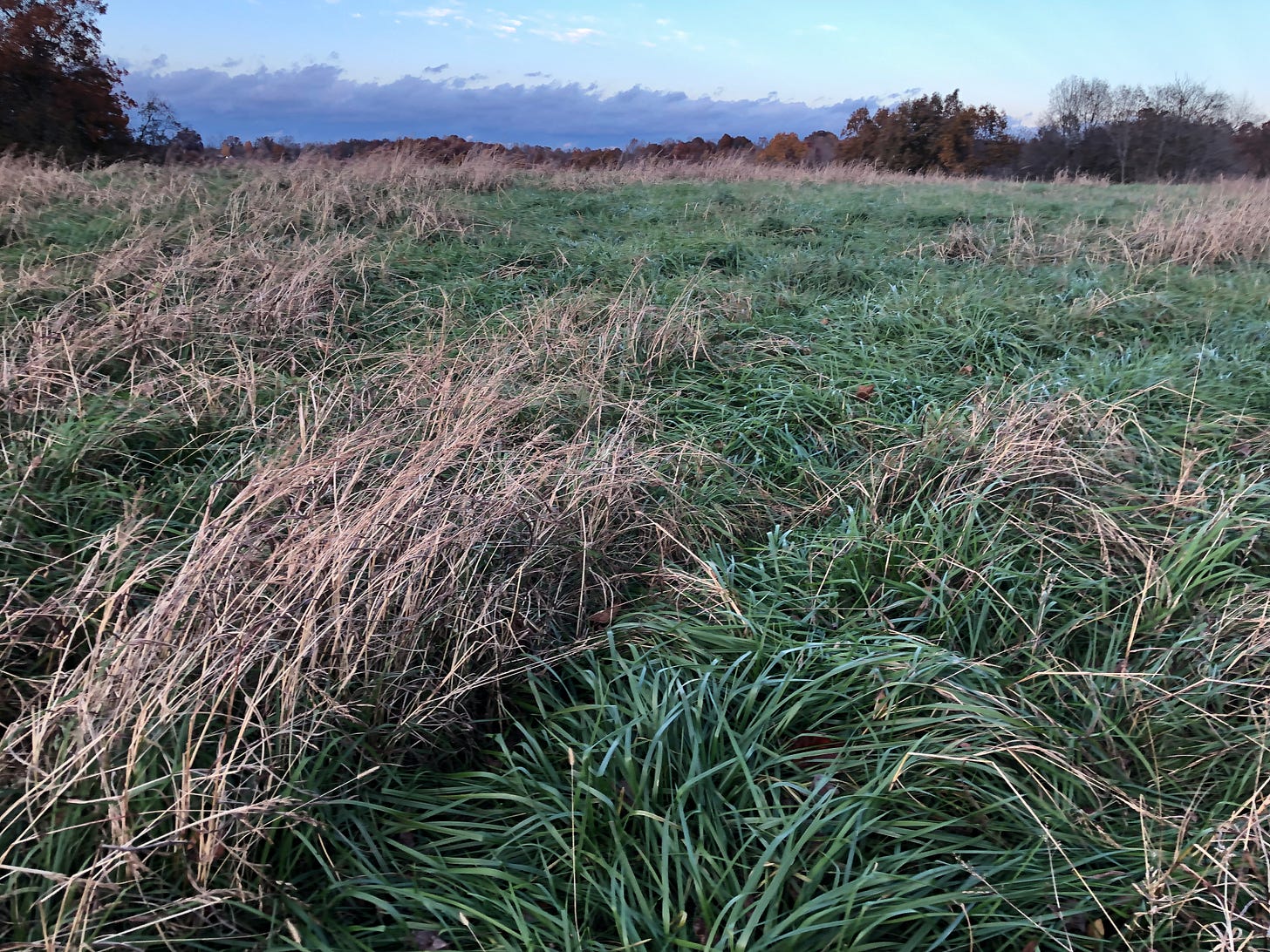TIMELY TIPS- February 2022
Grazing for Profit Conference, Mud and Hay Management, and Seeding
Grazing Enthusiasts.
It’s been a long, cold, wet winter in Tennessee/Kentucky, and this inevitably brings on the potential for lots of mud. Hay feeding strategies and maintaining cover are crucial to reducing mud and compaction. Seeding areas denuded from feeding will increase production, reduce weeds, and improve soil health.
Mud Management
Here are a few considerations to reduce the impacts of mud
Number One - maintaining good vegetation
Feeding away from travel areas
Unroll hay on areas to build fertility and weedy areas (48-14-48/ton N, P2O5 & K2O)
No hay ring around good hay with 20 plus cattle
Where possible, bring in hay from the side of the field that has more cover, not through the cattle
Feeding over the fence
Move hay feeding location each feeding
Set out hay when dry or when the ground’s frozen
Ration bale grazing with polywire
Fenceline feeders and manger feeders used only in wet, muddy conditions
Use these conditions to your advantage, pug out undesirable vegetation
Reseed areas lacking cover
Seeding
•Legumes
Frost seed in February, ideally on frozen ground or snow
Drill or harrow in March
•Cool season grass, ideally drilled in September
•Warm season grass like crabgrass broadcast seeded on lightly tilled soil in May
•Feeding areas
Persistent use areas, seed bermudagrass or tall fescue
Seed something to utilize excess nutrients and reduce weeds, annuals are fast and reduce weed issues
2-4-8 Renovate! 2lbs white clover, 4lbs red clover, 8lbs annual lespedeza on thinner soils. If cost is a concern, use this ratio, reduced.
Pelletized lime works well to bulk up the seed mix.
Grazing for Profit Conference- February 17, 2022
This conference offers small, large, beginning, and experienced producers insight into grazing management, matching livestock needs to forage resources and farm layout options for grazing and water management. Speaker Johnny Rogers is nationally recognized for his Red Angus cattle, soil health, and pasture management. Sam Kennedy will share his experiences growing his farm business while focusing on soil health through grazing management.
Speakers: Johnny Rogers, producer and professor NCSU; Dr. Katie Mason, UT; Greg Brann, producer, and Grazing Specialist; Sam Kennedy, Grazer; Terry Gupton, grazer moderator.
Location: Roane State Community College in Harriman, $30.00 per person, Preregister by February 11. Phone 865-248-3159 for additional information.
For additional information on grazing management, visit my website: gregbrann.com and check out “Resources.”


